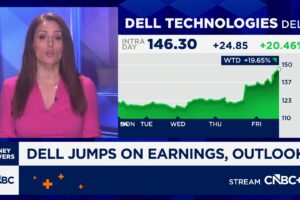Over the past couple of years, there have been a number of fast-growing industries that have caught the attention of investors. The rise of cannabis, the evolution of artificial intelligence, and the continued expansion of cloud computing have investors excited. But the fact of the matter is that bitcoin has run circles around all three of these popular industries.
<p class="canvas-atom canvas-text Mb(1.0em) Mb(0)–sm Mt(0.8em)–sm" type="text" content="Following a miserable 2018 during which the most popular cryptocurrency in the world lost more than 80% of its value, bitcoin has rebounded in a big way in 2019. Recently, the top crypto token in the world by market cap briefly crossed the $14,000 level, which it hadn't seen in close to a year and a half. Even as of this past Monday, bitcoin was trading firmly above the $10,000 mark per token.” data-reactid=”12″>Following a miserable 2018 during which the most popular cryptocurrency in the world lost more than 80% of its value, bitcoin has rebounded in a big way in 2019. Recently, the top crypto token in the world by market cap briefly crossed the $14,000 level, which it hadn’t seen in close to a year and a half. Even as of this past Monday, bitcoin was trading firmly above the $10,000 mark per token.


Image source: Getty Images.
<h2 class="canvas-atom canvas-text Mb(1.0em) Mb(0)–sm Mt(0.8em)–sm" type="text" content="Bitcoin aims to revolutionize how money is moved” data-reactid=”25″>Bitcoin aims to revolutionize how money is moved
<p class="canvas-atom canvas-text Mb(1.0em) Mb(0)–sm Mt(0.8em)–sm" type="text" content="For cryptocurrency enthusiasts, bitcoin represents a changing of the guard in terms of monetary policy. With payments being processed on a transparent and immutable digital ledger known as a blockchain, cryptocurrencies like bitcoin could transform the way money is moved from one party to another. In particular, bitcoin promises the potential of faster settlement times and cheaper transactions. For context, an overseas money transfer using a traditional banking network can take up to a full week to validate and settle, whereas bitcoin can complete the transaction in an hour or less.” data-reactid=”26″>For cryptocurrency enthusiasts, bitcoin represents a changing of the guard in terms of monetary policy. With payments being processed on a transparent and immutable digital ledger known as a blockchain, cryptocurrencies like bitcoin could transform the way money is moved from one party to another. In particular, bitcoin promises the potential of faster settlement times and cheaper transactions. For context, an overseas money transfer using a traditional banking network can take up to a full week to validate and settle, whereas bitcoin can complete the transaction in an hour or less.
<p class="canvas-atom canvas-text Mb(1.0em) Mb(0)–sm Mt(0.8em)–sm" type="text" content="In addition, bitcoin's value has also benefited from its perceived scarcity. Without getting too far into the weeds, the supply of bitcoin is limited to 21 million tokens, with annual inflation of the existing token base, which currently stands at roughly 17.8 million tokens, of less than 4%. This inflation derives from the fact that cryptocurrency miners are responsible for proofing the validity of transactions on bitcoin’s blockchain, and are awarded bitcoin tokens for being the first to do so for a particular block (i.e., a group of transactions). With bitcoin nearing its coin cap, there’s perceived scarcity.” data-reactid=”27″>In addition, bitcoin’s value has also benefited from its perceived scarcity. Without getting too far into the weeds, the supply of bitcoin is limited to 21 million tokens, with annual inflation of the existing token base, which currently stands at roughly 17.8 million tokens, of less than 4%. This inflation derives from the fact that cryptocurrency miners are responsible for proofing the validity of transactions on bitcoin’s blockchain, and are awarded bitcoin tokens for being the first to do so for a particular block (i.e., a group of transactions). With bitcoin nearing its coin cap, there’s perceived scarcity.
<p class="canvas-atom canvas-text Mb(1.0em) Mb(0)–sm Mt(0.8em)–sm" type="text" content="Bitcoin has also, arguably, been the beneficiary of good press of late. For example, Facebook‘s (NASDAQ: FB) announcement that it would create a currency-backed crypto token known as Libra is a shot in the arm to the long-term potential of crypto. If Facebook, the largest social media company in the world, plans to launch a new payment medium based on crypto, then bitcoin must have started revolution… right?” data-reactid=”28″>Bitcoin has also, arguably, been the beneficiary of good press of late. For example, Facebook‘s (NASDAQ: FB) announcement that it would create a currency-backed crypto token known as Libra is a shot in the arm to the long-term potential of crypto. If Facebook, the largest social media company in the world, plans to launch a new payment medium based on crypto, then bitcoin must have started revolution… right?
Well, not so fast.


Image source: Getty Images.
<h2 class="canvas-atom canvas-text Mb(1.0em) Mb(0)–sm Mt(0.8em)–sm" type="text" content="Bitcoin’s Catch-22 will keep it from ever being a true game-changer” data-reactid=”46″>Bitcoin’s Catch-22 will keep it from ever being a true game-changer
<p class="canvas-atom canvas-text Mb(1.0em) Mb(0)–sm Mt(0.8em)–sm" type="text" content="It's no secret that I’m not the biggest fan of bitcoin as an investment, and I’ve previously laid out why I believe it should be avoided. But this goes beyond simply buying bitcoin and hoping it increases in value so investors can book a profit. The reason bitcoin won’t be able to lead a monetary revolution is that it’s held hostage by a Catch-22: Its "scarce" token coin and its utility as a medium of payment work in opposition to one another.” data-reactid=”47″>It’s no secret that I’m not the biggest fan of bitcoin as an investment, and I’ve previously laid out why I believe it should be avoided. But this goes beyond simply buying bitcoin and hoping it increases in value so investors can book a profit. The reason bitcoin won’t be able to lead a monetary revolution is that it’s held hostage by a Catch-22: Its “scarce” token coin and its utility as a medium of payment work in opposition to one another.
<p class="canvas-atom canvas-text Mb(1.0em) Mb(0)–sm Mt(0.8em)–sm" type="text" content="One of the reasons bitcoin holds such lofty values is that investors view the supply as being limited to 21 million tokens. However, this limitation is the result of programming code, as opposed to real world conditions of the type that limit the supply of gold. Though it’s unlikely, bitcoin’s token count could be increased if the bitcoin community were to reach a strong consensus.” data-reactid=”48″>One of the reasons bitcoin holds such lofty values is that investors view the supply as being limited to 21 million tokens. However, this limitation is the result of programming code, as opposed to real world conditions of the type that limit the supply of gold. Though it’s unlikely, bitcoin’s token count could be increased if the bitcoin community were to reach a strong consensus.
Then, there’s the matter of bitcoin’s utility. It can certainly be argued that it is accepted in more countries than ever before, and that bitcoin’s divisibility to eight decimal places allows people all over the globe to use it for transactions. But what you may not realize is that in the neighborhood of 40% of outstanding tokens aren’t in circulation. Rather, they’re being held by investors over the long run.
The reality is that bitcoin can have either perceived scarcity or utility, but not both. With its current token count, it could never seriously challenge fiat currencies, but this relative undersupply has helped keep the price of tokens high. Meanwhile, substantially upping the token count would allow for increased utility, but the resulting inflation would kill the perception of scarcity and likely ravage bitcoin’s token price.


Image source: Getty Images.
<h2 class="canvas-atom canvas-text Mb(1.0em) Mb(0)–sm Mt(0.8em)–sm" type="text" content="But wait — there’s more” data-reactid=”63″>But wait — there’s more
Perhaps an even better argument against bitcoin is that, while its blockchain has been the basis for innovation throughout the crypto industry, new blockchain projects are being developed and tested that either work using fiat currencies or are completely independent of a digital token. Those could make bitcoin obsolete in the not-so-distant future.
<p class="canvas-atom canvas-text Mb(1.0em) Mb(0)–sm Mt(0.8em)–sm" type="text" content="There are also projects like Facebook's Libra token that are being tied to a basket of fiat currencies and securities. These stablecoin projects have much more to entice retailers given their perceived lack of volatility. Retailers are understandably hesitant to accept bitcoin because of its wild swings in price and what those uncertain swings could do to their margins.” data-reactid=”65″>There are also projects like Facebook’s Libra token that are being tied to a basket of fiat currencies and securities. These stablecoin projects have much more to entice retailers given their perceived lack of volatility. Retailers are understandably hesitant to accept bitcoin because of its wild swings in price and what those uncertain swings could do to their margins.
As much as some folks want to believe that bitcoin is the next big thing in money transfers, it’s time to recognize that it’s not.
<p class="canvas-atom canvas-text Mb(1.0em) Mb(0)–sm Mt(0.8em)–sm" type="text" content=" More From The Motley Fool ” data-reactid=”67″> More From The Motley Fool
<p class="canvas-atom canvas-text Mb(1.0em) Mb(0)–sm Mt(0.8em)–sm" type="text" content="Randi Zuckerberg, a former director of market development and spokeswoman for Facebook and sister to its CEO, Mark Zuckerberg, is a member of The Motley Fool’s board of directors. Sean Williams has no position in any of the stocks or cryptocurrencies mentioned. The Motley Fool owns shares of and recommends Facebook, but has no position in any of the cryptocurrencies mentioned. The Motley Fool has a disclosure policy.” data-reactid=”75″>Randi Zuckerberg, a former director of market development and spokeswoman for Facebook and sister to its CEO, Mark Zuckerberg, is a member of The Motley Fool’s board of directors. Sean Williams has no position in any of the stocks or cryptocurrencies mentioned. The Motley Fool owns shares of and recommends Facebook, but has no position in any of the cryptocurrencies mentioned. The Motley Fool has a disclosure policy.









